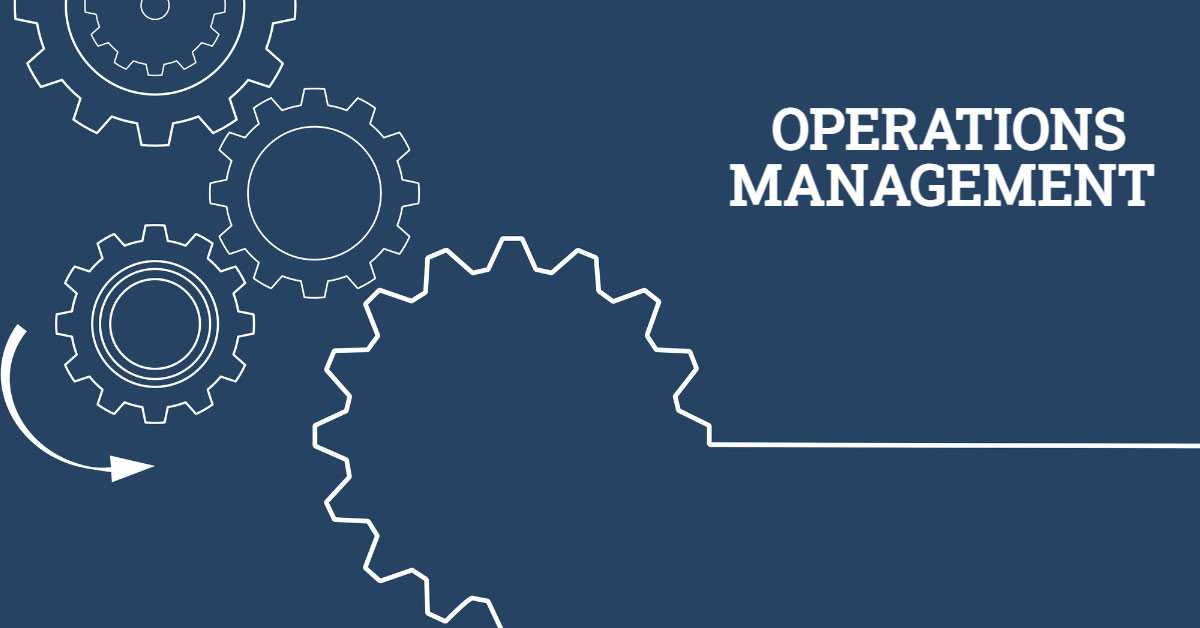Operations management is the process of planning, organizing, and controlling the resources of an organization to produce goods or services. It is a critical function in any business, as it is responsible for ensuring that the company can meet its customer demand in a timely and efficient manner.
There are many different aspects to operations management, including:
- Production planning: This involves determining the quantity and type of products or services that need to be produced, as well as the timing of production.
- Inventory management: This involves keeping track of the levels of raw materials, work-in-progress, and finished goods inventory, and ensuring that the right amount of inventory is on hand to meet demand.
- Quality control: This involves ensuring that products or services meet the company’s quality standards.
- Workforce management: This involves recruiting, hiring, and training employees, as well as scheduling and assigning work.
- Cost management: This involves controlling the costs of production, inventory, and other operations-related expenses.
Operations managers must be able to balance a number of different factors, including customer demand, cost, quality, and efficiency. They must also be able to adapt to changes in the market, such as changes in customer preferences or new technologies.
Operations management is a complex and challenging field, but it is also a very rewarding one. Operations managers play a critical role in the success of any business.
Here are some of the key concepts of operations management:
- Efficiency: Efficiency is the ability to produce goods or services with the least amount of resources.
- Effectiveness: Effectiveness is the ability to produce goods or services that meet the needs of customers.
- Quality: Quality is the degree to which goods or services meet customer expectations.
- Cost: Cost is the amount of money that is spent to produce goods or services.
- Time: Time is the amount of time it takes to produce goods or services.
Operations managers use a variety of tools and techniques to improve the efficiency, effectiveness, quality, cost, and time of production. Some of these tools and techniques include:
- Lean manufacturing: Lean manufacturing is a set of principles and practices that are used to eliminate waste from the production process.
- Six Sigma: Six Sigma is a quality improvement methodology that aims to reduce defects to near zero.
- Total quality management (TQM): TQM is a management philosophy that focuses on continuous improvement of all aspects of an organization.
- Just in time (JIT): JIT is a production system that aims to deliver goods or services to customers just when they are needed.
- Theory of constraints (TOC): TOC is a management philosophy that focuses on identifying and removing bottlenecks in the production process.
Operations management is a dynamic and ever-changing field. As the world becomes more globalized and competitive, operations managers will need to be able to adapt to new challenges and opportunities.
Here are some of the trends that are shaping the future of operations management:
- Globalization: The global economy is becoming increasingly interconnected, which means that businesses are facing new challenges and opportunities in terms of production and distribution.
- Technology: New technologies, such as robotics and artificial intelligence, are changing the way goods and services are produced.
- Customer expectations: Customers are demanding more personalized and customized products and services, which puts pressure on operations managers to be more flexible and responsive.
- Sustainability: Businesses are under increasing pressure to operate in a sustainable manner, which means that operations managers will need to find ways to reduce their environmental impact.
The future of operations management is bright. As businesses continue to face new challenges and opportunities, operations managers will play a critical role in helping them succeed.






